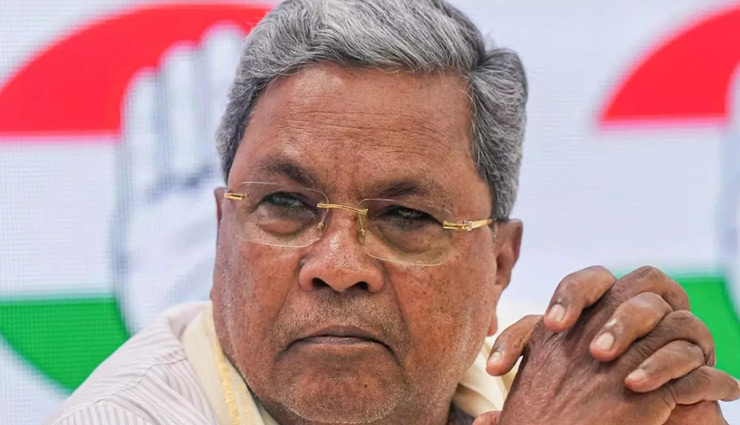- Home›
- News›
- The Controversial Push For Urdu In Karnataka: How Siddaramaiah’s Policy Threatens To Disrupt The State’s Social Fabric
The Controversial Push For Urdu In Karnataka: How Siddaramaiah’s Policy Threatens To Disrupt The State’s Social Fabric
By: Priyanka Maheshwari Fri, 27 Sept 2024 12:38:44

In Karnataka, where language is a highly sensitive issue, the Siddaramaiah-led Congress government's recent decision to mandate Urdu proficiency for Anganwadi teachers in Mudigere and Chikkamagaluru has ignited fresh controversy. This move, already facing protests and political backlash, risks alienating a portion of the population and threatens to disrupt the state's fragile social harmony.
The Controversial Move
The crux of the issue lies in the state government's notification that mandates Urdu proficiency for Anganwadi teacher applicants in districts with a significant Muslim population. In this case, Mudigere and Chikkamagaluru, where the Muslim community constitutes 31.94% of the population, have been singled out. The decision, while seemingly aimed at linguistic inclusivity, has been interpreted by many as a politically motivated act of appeasement.
This mandate has drawn sharp criticism, particularly from the BJP, which accuses the Congress government of pushing an agenda that could undermine the state's linguistic unity. BJP leaders, including former MP Nalin Kumar Kateel, have called the move an attempt at "Muslim appeasement," which could deny job opportunities to Kannada-speaking candidates in their own state.
A State with a History of Linguistic Pride
The political landscape of Karnataka has long been sensitive to issues of language. The state has witnessed strong opposition to the imposition of Hindi, with widespread protests against the perceived threat to Kannada. Against this backdrop, the imposition of Urdu, even in select districts, feels like another unwelcome intrusion that undermines the prominence of Kannada, the state's official language.
Karnataka prides itself on its linguistic diversity, with Kannada being the unifying language across the state's varied communities. The decision to prioritize Urdu over Kannada, even in districts where the Muslim population is significant, raises concerns about the erosion of this unity. Pro-Kannada groups are already pushing back, and this mandate risks widening the linguistic fault lines.
Alienating a Linguistically Diverse Population
Karnataka is home to a large population of migrants from other Indian states, particularly in urban centers like Bengaluru. Many of these migrants speak Hindi, Telugu, Tamil or Marathi, adding layers to the linguistic diversity of the state. A government that has historically resisted the imposition of Hindi now seems to be favouring Urdu in specific regions, further complicating the cultural equation.
For a state that houses this much linguistic diversity, the mandate for Urdu proficiency could set a dangerous precedent. It risks alienating non-Urdu speaking candidates who might be equally or better qualified for the job but do not have the requisite linguistic skills. Moreover, the government's logic, which hinges on the sizable Muslim population in these districts, can easily be questioned. Should language quotas be based purely on demographic percentages, or should the focus remain on Kannada, the common thread binding the state's social fabric?
Urdu and Anganwadi Workers: A Disconnect with the Masses?
Anganwadi workers serve as essential links between government schemes and the community, particularly in rural areas. Their effectiveness depends on their ability to communicate clearly with the local population, a vast majority of whom speak Kannada. By mandating Urdu, the government risks creating a disconnect between these workers and the local populace, many of whom might not understand the language.
While the intention might be to serve minority communities better, it could end up doing the opposite-widening the gap between the state apparatus and the majority of the local population. Proficiency in Kannada should have been prioritised, or at least considered equally important. This would ensure that Anganwadi workers remain rooted in the local linguistic context while still catering to the minority population.
The Bottom Line: A Misstep in State Policy
The Siddaramaiah government's move to mandate Urdu for Anganwadi teachers is a poorly thought-out policy that risks upsetting Karnataka's delicate linguistic and social balance. By prioritising one minority language over Kannada, the Congress government is walking a tightrope that could alienate the majority of its population. In a state that has consistently opposed linguistic imposition, this decision is not only divisive but could also set a dangerous precedent for future policies.
Karnataka, with its rich history of linguistic pride and cultural diversity, needs policies that unite rather than divide. Instead of fostering inclusivity, the government's Urdu mandate has the potential to create further fragmentation, raising uncomfortable questions about the future of language politics in the state.





